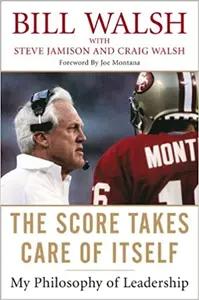The World We Have Lost
By Peter Laslett
Category
HistoryRecommended by
"The World We Have Lost" by Peter Laslett is a comprehensive exploration of the fundamental changes that shaped English society from 1530 to 1780.
Through meticulous research and analysis, Laslett delves into various aspects of social life, including family structures, social status, religion, and politics. He expertly paints a vivid picture of a society that operated on principles vastly different from our own.
Laslett examines the evolution of the family unit, highlighting the shift from large extended families to smaller, nuclear households. He explores the roles and responsibilities of different family members, shedding light on the intricate dynamics and challenges they faced.
In addition to family life, Laslett explores prevailing social hierarchies, demonstrating how individuals were categorized based on birth, wealth, and occupation. He uncovers the social and economic disparities that defined this era, illustrating the immense divide between the elites and the common people.
Religion and its influence on society and individual lives is another focal point of Laslett's research. He explores the impact of the English Reformation and the rise of Protestantism, shedding light on how religious beliefs shaped perspectives, values, and behaviors.
Furthermore, Laslett delves into the political landscape, examining the monarchy, Parliament, and the relationship between the state and its citizens. He uncovers the tensions and conflicts that characterized this period, providing insight into how political structures and ideologies shaped society.
Through Laslett's skillful analysis and engaging prose, "The World We Have Lost" offers readers a nuanced understanding of the features, challenges, and complexities of English society during this transformative period. It serves as a valuable resource for historians, scholars, and anyone seeking to gain a deeper understanding of the past, enriching our comprehension of the world we inhabit today.
Through meticulous research and analysis, Laslett delves into various aspects of social life, including family structures, social status, religion, and politics. He expertly paints a vivid picture of a society that operated on principles vastly different from our own.
Laslett examines the evolution of the family unit, highlighting the shift from large extended families to smaller, nuclear households. He explores the roles and responsibilities of different family members, shedding light on the intricate dynamics and challenges they faced.
In addition to family life, Laslett explores prevailing social hierarchies, demonstrating how individuals were categorized based on birth, wealth, and occupation. He uncovers the social and economic disparities that defined this era, illustrating the immense divide between the elites and the common people.
Religion and its influence on society and individual lives is another focal point of Laslett's research. He explores the impact of the English Reformation and the rise of Protestantism, shedding light on how religious beliefs shaped perspectives, values, and behaviors.
Furthermore, Laslett delves into the political landscape, examining the monarchy, Parliament, and the relationship between the state and its citizens. He uncovers the tensions and conflicts that characterized this period, providing insight into how political structures and ideologies shaped society.
Through Laslett's skillful analysis and engaging prose, "The World We Have Lost" offers readers a nuanced understanding of the features, challenges, and complexities of English society during this transformative period. It serves as a valuable resource for historians, scholars, and anyone seeking to gain a deeper understanding of the past, enriching our comprehension of the world we inhabit today.
Share This Book 📚
More Books in History

Sapiens
Yuval Noah Harari

The Lessons of History
Will & Ariel Durant

Destined For War
Graham Allison

Guns, Germs, and Steel
Jared Diamond

Homo Deus
Yuval Noah Harari

The Autobiography of Benjamin Franklin
Benjamin Franklin

The Rise And Fall Of American Growth
Robert J. Gordon

Titan
Ron Chernow

The Fabric of Civilization
Virginia Postrel

The Last Days of Night
Graham Moore

The Last Lion
Paul Reid

Dead Wake
Erik Larson

Empire of the Summer Moon
S.C. Gwynne

Faraday, Maxwell, and the Electromagnetic Field
Nancy Forbes

From Bacteria to Bach and Back
Daniel Dennett

Guns, Sails, and Empires
Carlo M. Cipolla

Medieval Technology and Social Change
Lynn White

The Ancient City
Peter Connolly

The Forgotten Man
Amity Shales

The Fourth Turning
William Strauss

The Great Crash of 1929
John Kenneth Galbraith

The Law
Frederic Bastiat

The Old Way
Elizabeth Marshall Thomas

The Origin of Species
Charles Darwin

The Red Queen
Matt Ridley

The Story of Civilization
Will & Ariel Durant

Tuxedo Park
Jennet Conant

Where Good Ideas Come From
Steven Johnson

A History of Knowledge
Charles Van Doren

A History of Rome
Moses Hadas
Popular Books Recommended by Great Minds 📚

The Outsiders
William Thorndike

Titan
Ron Chernow

Brotopia
Emily Chang

The Lord of the Rings
J.R.R. Tolkien

Behind the Cloud
Marc Benioff

Behave
Robert Sapolsky

Extreme Ownership
Jocko Willink

Superforecasting
Philip Tetlock

When Genius Failed
Roger Lowenstein

The Coddling of the American Mind
Greg Lukianoff & Jonathan Haidt

The Lessons of History
Will & Ariel Durant

American Kingpin
Nick Bilton

Measure What Matters
John Doerr

Meditations
Marcus Aurelius

Against The Gods
Peter Bernstein

Hillbilly Elegy
J.D. Vance

Becoming Steve Jobs
Brent Schlender

The Bitcoin Standard
Saifedean Ammous

The Innovators Dilemma
Clayton Christensen

Guns, Germs, and Steel
Jared Diamond

The Fountainhead
Ayn Rand

Why We Sleep
Matthew Walker

Who We Are and How We Got Here
David Reich

The Score Takes Care of Itself
Bill Walsh

Man's Search for Meaning
Viktor Frankl

Mindset
Carol Dweck

The Rational Optimist
Matt Ridley

The Ride of a Lifetime
Bob Iger

Masters of Doom
David Kushner

The Hard Thing About Hard Things
Ben Horowitz
